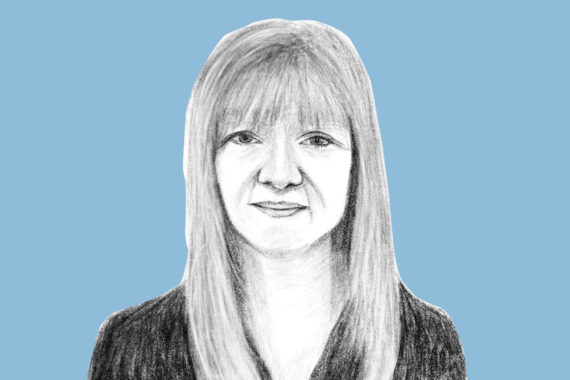Dr Zoe Rog on how her practice’s triage system has helped them regain a degree of control against selfish patients
Although I enjoy the privilege of working closely with patients and for the most part experiencing the best of human nature, I do often find myself disappointed by the less laudable behaviour of some patients.
Lengthy outpatient waits are an especially potent aggravator of such behaviour. While many will wait patiently knowing they are not alone, some are belligerent that we should contact the hospital asking for their procedures to be brought forward. Explanations about why this is clinically inappropriate and unfair to others fall on deaf ears. And though we may decline to write the letters, it still takes time to have these discussions – time which could be spent dealing with other patients.
Most practices already recognise that no matter what appointment systems we use, some patients will still find ways to ‘play’ these systems to gain an advantage. We have been using our current online triage system for a few months, and it has not proved immune to this sort of behaviour from patients – in all shapes and sizes.
There are the patients who provide minimal information despite our texts asking them further questions. If these interactions result in a routine appointment being offered, the patient may submit a new triage request containing a tirade about how unhappy they are to have not been offered an urgent appointment. This is despite the fact that prior exchanges gave no indication suggesting they had to be seen urgently.
Then there are the patients who respond to our request to answer further questions by enthusiastically claiming to have red flag symptoms that they do not have. They are then signposted to A&E rather than being offered the urgent GP appointment they expected.
There is also the group who become incandescent with anger because we have offered such an efficient service that we have now disrupted their other plans. Perhaps we gave them an appointment too quickly after they submitted a request for an urgent appointment, rang them while they were out shopping, or offered them an appointment that afternoon when they had to stay in and wait for a delivery – despite the fact they requested an urgent appointment.
And of course there have always been the downright unreasonable. Those who persistently refuse to order prescriptions using the usual system because they believe that they should be treated preferentially to our other 14,000 patients. Patients who are not housebound, demanding home visits and are then not home when a clinician arrives. There are the patients with symptoms that suggest a routine medical problem, who sit in reception refusing to leave until they have seen a GP – even when another clinician may be more appropriate. Patients who contact us while abroad, demanding that we treat them remotely but are presenting conditions which need face to face examination to be managed safely.
Faced with these behaviours, we could find ourselves feeling demoralised and disillusioned. However, some people have always behaved like this and probably always will. The key question is how best to manage it.
All practices and patient populations are different, but in our practice it does feel as if the triage system is now helping us regain a degree of control. It doesn’t solve everything, but it does allow us to spot and prioritise those patients who don’t like to bother anyone, who may be playing down serious symptoms. We can give a consistent message in how our systems work so that they remain fair for everyone and so that exceptions are only made when they are really justified.
No system is perfect. But this one does seem to be suiting us and most of our patients better while preserving our sanity, for now at least…
Dr Zoe Rog is a GP in Runcorn, Cheshire













This is like a shop in which the staff have to assess all the customers’ requirements for the products , find the best value deals and ensure they get them in order of priority despite what the customers want. Bonkers. Only in the UK.
Nope..it’s not like a shop, it’s just a chronically underfunded public service – like policing , fire services, the military etc. The priority is based on urgency and ‘need’ decided by those with the expertise, it cant be based on what the public might ‘want’ like in a supermarket or private medicine.
We have an expanding and ageing population with complex comorbidities whilst GP capacity has reduced unlike in secondary care.
Most patients requests are reasonable. Every extra demand over and above capacity is resented. The natural response is engender an anti-patient attitude. We should remember that 10 years of wilful trashing of the service by the previous government is where blame lies, not with our patients.
Yes I used to get annoyed by thus briefly as a parter adding to the endless number of patients 15 urgent colds a day. It’s the uk system makes us hate patirnts cos the more they come the less u get psid per contact. Returning to locumnwirk and a stint in canada changed my oersoective to wanting to see patients. U get paid if they come to see you. There’s none of this rationing gatekeepers in canada and you just try to do best for each patient and meet their requirements. It was a refreshing refocusing
GPs, as intellectually and morally superior beings, are ideally placed to make moral judgements about others.